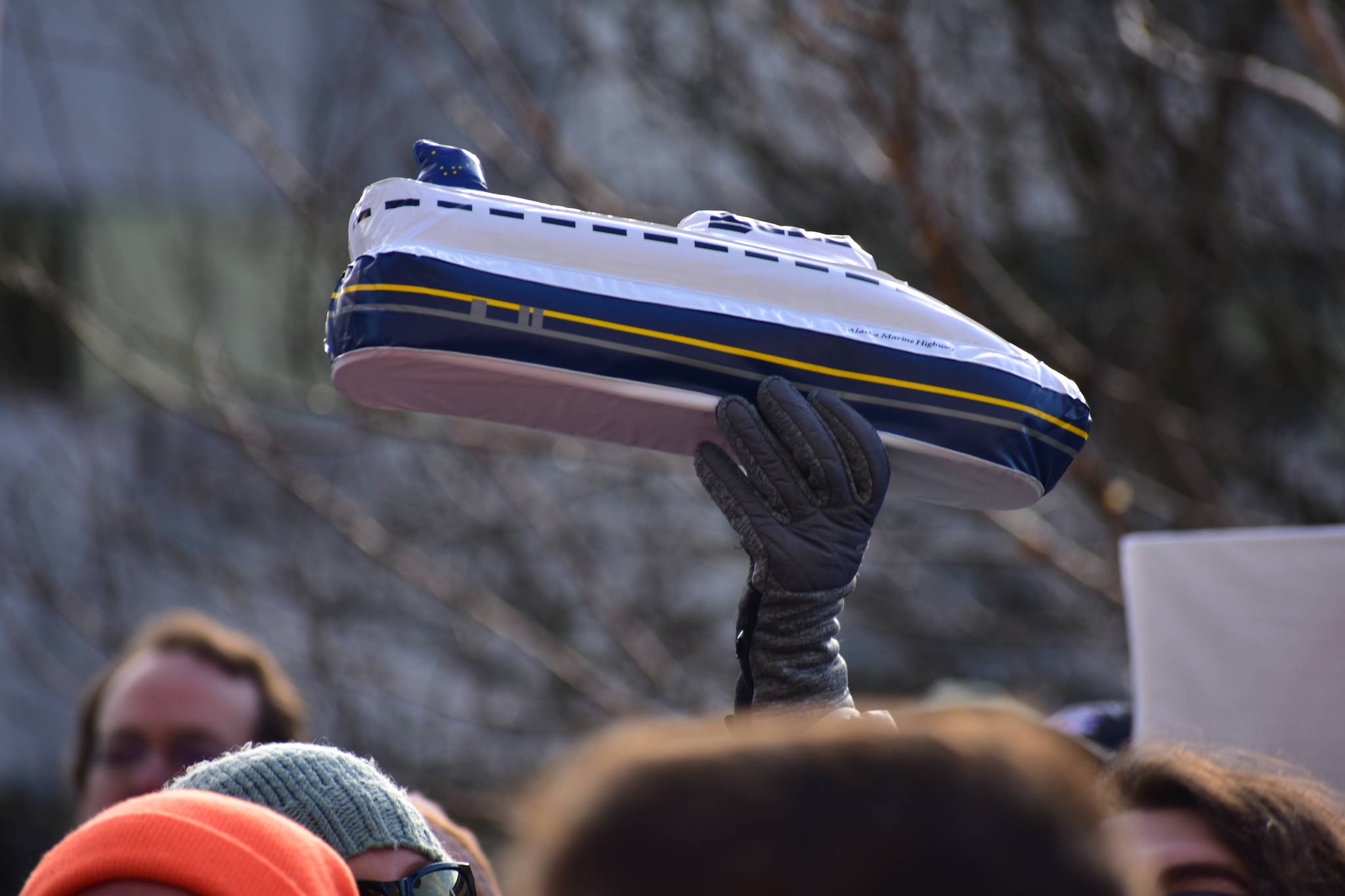A week ago, high school students from Haines and Skagway traveled home from Juneau on an Allen Marine Tours boat charted by their respective school districts. In Cordova, which hasn’t had ferry service since September, Alaska Marine Lines is shipping groceries in and transporting vehicles to Whittier. And a private business in Tenakee is considering buying a landing craft to replace the ferry service the company had used to ship processed lumber to Juneau for eight years.
All that was before state officials announced the MV Matanuska will remain out of service until the middle of April.
Welcome to the Gov. Mike Dunleavy era of efficient government.
Last August, Dunleavy referred to budget reforms he initiated as making the Alaska Marine Highway System “more efficient and more sustainable.” That was the same day he vetoed an additional $5 million that legislators added to the FY20 budget.
[Ferry work group holds first meeting]
That’s also when he signed the capital budget that included $13.5 million from the system’s operating fund for “vessel overhaul and certification needed to keep ferries running.”
How does Dunleavy explain why only one is currently running?
In a recent interview, the governor rattled off the name the several ferries built between 1963 and 1974. And then said the aging ships are offline primarily because they’d been neglected the past few decades.
But the Matanuska broke down because of defective equipment that had been recently installed while other repairs and safety upgrades were being made.
And last fall, the MV LeConte was drydocked for $1.2 million worth of regularly scheduled maintenance. But the administration decided not to do the work when the inspection revealed additional repairs costing $5.3 million were needed.
“We believe it would be irresponsible to spend the available $6.5 million on one very old vessel” a spokesperson for the Department of Transportation and Public Facilities wrote in an email. And she added that it and the other “old vessels are literally rusting out from under us.”
DOT Commissioner John MacKinnon didn’t publicly endorse that wildly irresponsible exaggeration. But according to the Alaska Journal of Commence, he thinks ferries should be retired or scrapped after 35 years in service.
That’s premature based on the ferries operating in British Columbia. There are 36 of them. And 16 were built more than 50 years ago.
I’m not trying to downplay the high cost of maintaining the older ships. But that’s not the full story.
There are also the two newer high-speed ferries, which are now up for sale, that were poorly designed and built. And seven years ago, the state ordered the two recently christened Alaska Class Ferries without the side doors needed to efficiently load and unload vehicles at existing ferry terminals.
Those are examples of the unintended consequences of politicians determining the best way to solve some of the system’s economic inefficiencies.
Dunleavy has a new approach. If the economic inefficiency can’t be measured, then it must not exist. Thus, cutting funding for the programs where it exists can make it disappear.
Implementation of the federal REAL ID program offers a more succinct example of how this works.
The Division of Motor Vehicles issues the REAL IDs. But the cost for DMV employees to get to their offices in rural Alaska is very expensive. And the number of residents they’d serve in those regions is relatively small. So instead of funding the travel, DMV asked legislators, nonprofits and community members to cover it with donations.
The cost per ID issued doesn’t change. It’s just that the government isn’t paying the portion that made each one far more expensive, and thus less efficient, than those produced at most DMV offices.
DMV’s website touts itself as being “Faster, Friendlier, and More Accessible.” But the box rural Alaskans would likely check is ‘none of the above’.
DOT’s mission statement is to “Keep Alaska Moving through service and infrastructure.” But residents in Southeast and Southcentral Alaska see it moving almost nothing.
Incompetence is the right word to describe Dunleavy’s role in the failure of both programs.
Quoting from the definition in a legal opinion issued by his Attorney General, this governor has shown he lacks the “sufficient knowledge, skill or professional judgment required” to ensure these state agencies can effectively fulfill their missions.
• Rich Moniak is a Juneau resident and retired civil engineer with more than 25 years of experience working in the public sector. Columns, My Turns and Letters to the Editor represent the view of the author, not the view of the Juneau Empire.
• By Rich Moniak

